A last-gasp effort that settled the fight for pole position was a fittingly dramatic end to Hyperpole qualifying at the Le Mans 24 Hours.
Never mind the fact that lap was from a manufacturer team tipped by many as this year’s favourite; given how close things have looked between the leading contenders, it set up a mouth-watering prospect for the race itself.
But who else is well-placed for a good 24 hours and who might be in for a rougher ride?
Here’s our pick of the talking points in the Hypercar class at Le Mans so far.
Porsche backs up its favourite tag
This has so far been an emphatic 2024 World Endurance Championship campaign for the Multimatic-built Porsche 963 LMDh. The factory #6 Porsche Penske won the Qatar season opener and was runner-up in the two races since, while the sister #5 car and Jota’s #12 customer entry (which won at Spa) have taken four of the other six Hypercar podium spots available.
Little wonder Porsche headed to Le Mans as favourite.
And, on the face of it, you might say little wonder the championship-leading #6 car then took pole.
But it really did require something to be pulled out of the bag in the Hyperpole session – particularly as Porsche’s hopes rested solely on Kevin Estre by that point.
Estre made great use of a tow from an LMP2 car off Mulsanne corner (although passing it did compromise his line into Indianapolis) and the 35-year-old, part of the 2018-19 WEC GTE Pro title-winning Porsche line-up, used all of that GT racing experience to monster the kerbs at the Ford chicane at the end of the lap in particular to go fastest by a tenth and a half.
Over a stint things looks close too, though again Porsche appears marginally the favourite – only this time from the #51 and #50 Ferraris that start third and fourth respectively, rather than the Cadillacs that ran the #6 closest in qualifying. All that could be moot given the forecast for late race showers, meaning the goal might just be to stay on the lead lap until then and be ready to capitalise on any last gasp chaos.
So where’s this 2024-spec turn of pace come from for a Porsche that managed two podiums all season – in a significantly less congested Hypercar field too – last year?
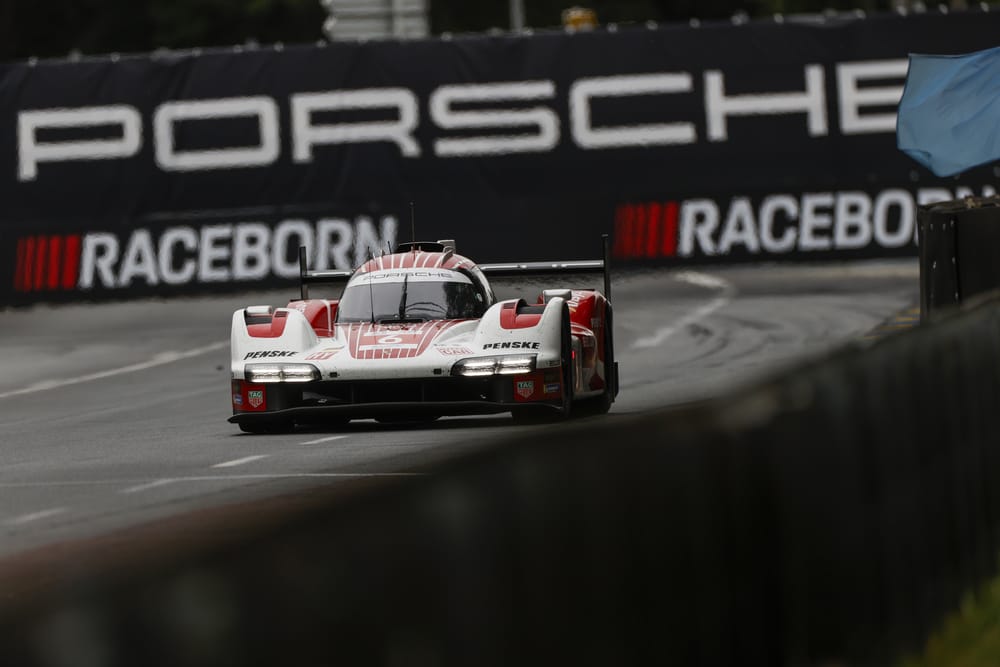
The roots of this are inevitably in that season as Porsche worked hard on the package to make sure it unlocked pace that proved out of reach previously – a process that was undoubtedly made easier by the upgraded Porsche Penske facility in Mannheim becoming fully operational at the end of 2023.
The fruits of that improved understanding are stronger traction out of the slower corners and better ride over the kerbs, while Porsche has also advanced its software and has a better read on how to develop its vehicle dynamics too.
Those are all significant areas that have unlocked this potential – with its early-season performance and Le Mans pole the proof of concept.
Whether Porsche is victorious come Sunday afternoon, it’s already been a big feature of the 2024 Le Mans 24 Hours – so much so that its snub of Sebastien Vettel for its third works entry, following a serious test programme in the 963, has barely been mentioned.
Shock customer win looks unlikely
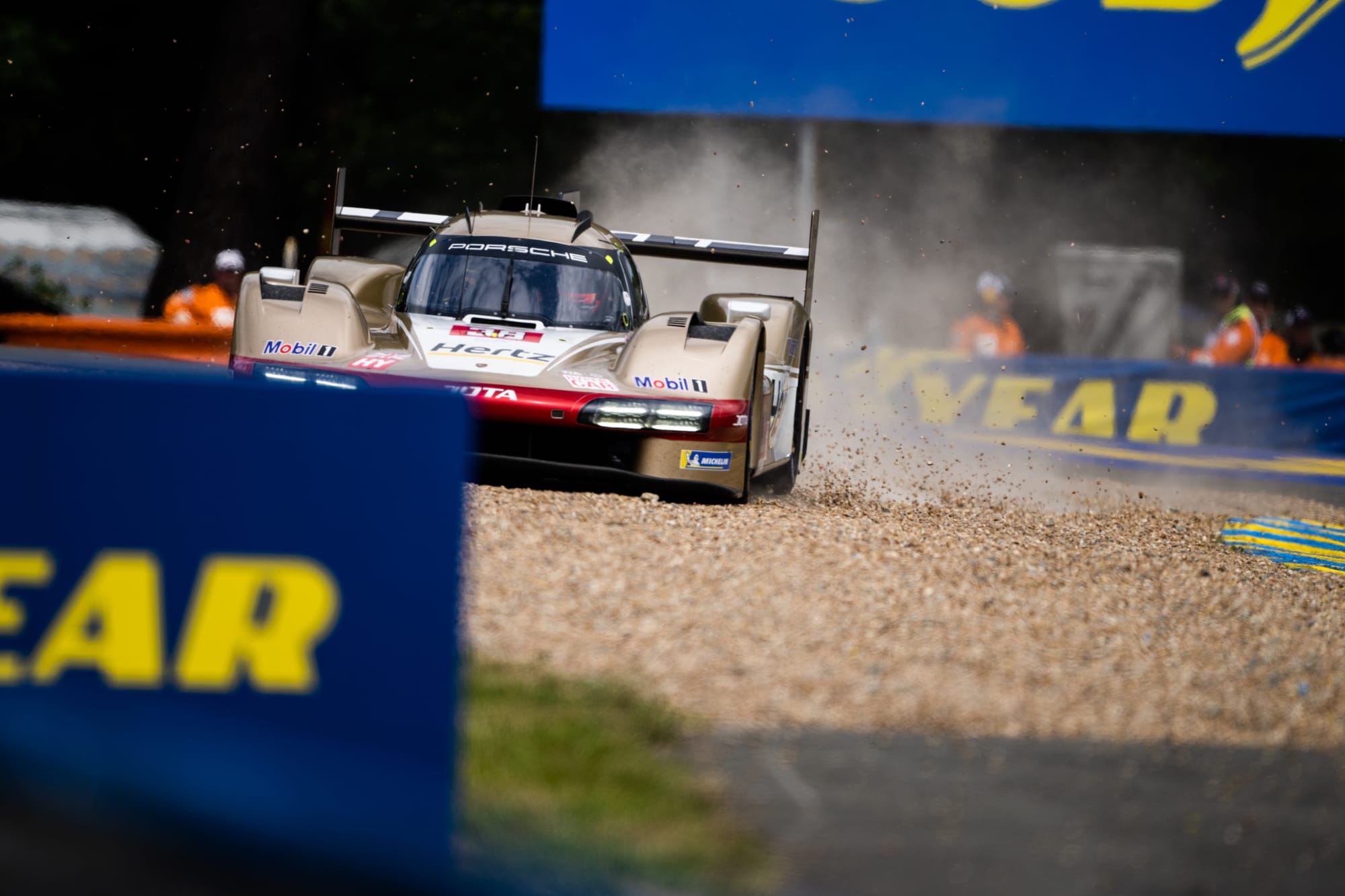
The #6 Porsche was ultimately the only 963 in the fight for pole. But it probably shouldn’t have been.
Customer squad Jota headed to Le Mans on the crest of a wave following its victory at Spa, and it also made the cut for the Hyperpole session.
But then its progress was derailed by a heavy practice crash for Callum Ilott – one that was so significant the car couldn’t be repaired in time to take part in the shootout session.
Ilott was given special dispensation to miss the parade and shake down the rebuilt car he’s sharing with Will Stevens and Norman Nato at the Le Mans airfield on Friday evening, but even with an eighth-place starting position confirmed that damage is a big blow to Jota’s hopes of outright victory.
Where’s Cadillac’s pace come from?
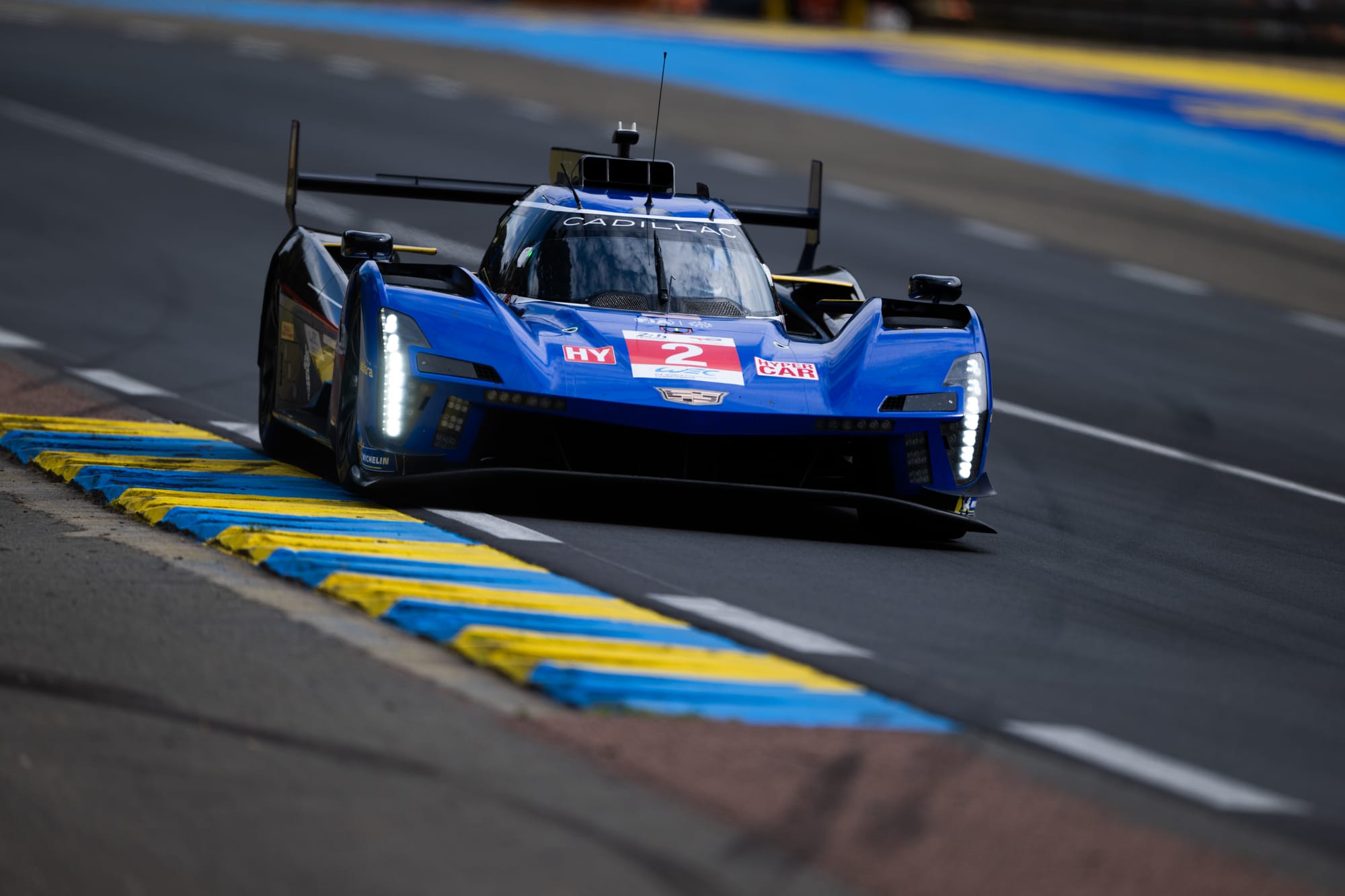
A cursory glance at this year’s Hypercar points standings doesn’t paint a pretty picture for Cadillac, as its full-season #2 entry has a solitary point after three races.
But the standings definitely don’t tell the full story. The car was fifth in the Qatar season opener, only to be disqualified almost three weeks down the line as the diffuser Cadillac ran from car builder Dallara was different in spec to the one on its homologation form, while it was in podium contention at Spa last month until it was involved in a huge, red-flag inducing crash – one that driver Earl Bamber was ultimately deemed responsible for, earning the #2 a five-place grid penalty at Le Mans.
So there’s been pace there, even if the points have been left wanting. And behind the great Ferrari-Toyota struggle for victory in last year’s centenary running of Le Mans, Cadillac was easily the most impressive of the other brands.
Once again, it’s in the mix. That grid penalty might have pushed the #2 back to seventh for the start, but its place on the front row is instead assumed by the #3 IMSA SportsCar Championship entry of Sebastien Bourdais, Scott Dixon and Renger van der Zande.
Le Mans native Bourdais was the long-time leader in Hyperpole qualifying with a Dallara chassis underneath him that’s arguably the class of the field as far as vehicle dynamics are concerned. If the reliability is there – as it was last year – there’s every reason to expect the Ganassi-run Cadillacs in particular to be in podium contention once more.
Where on earth is Toyota?
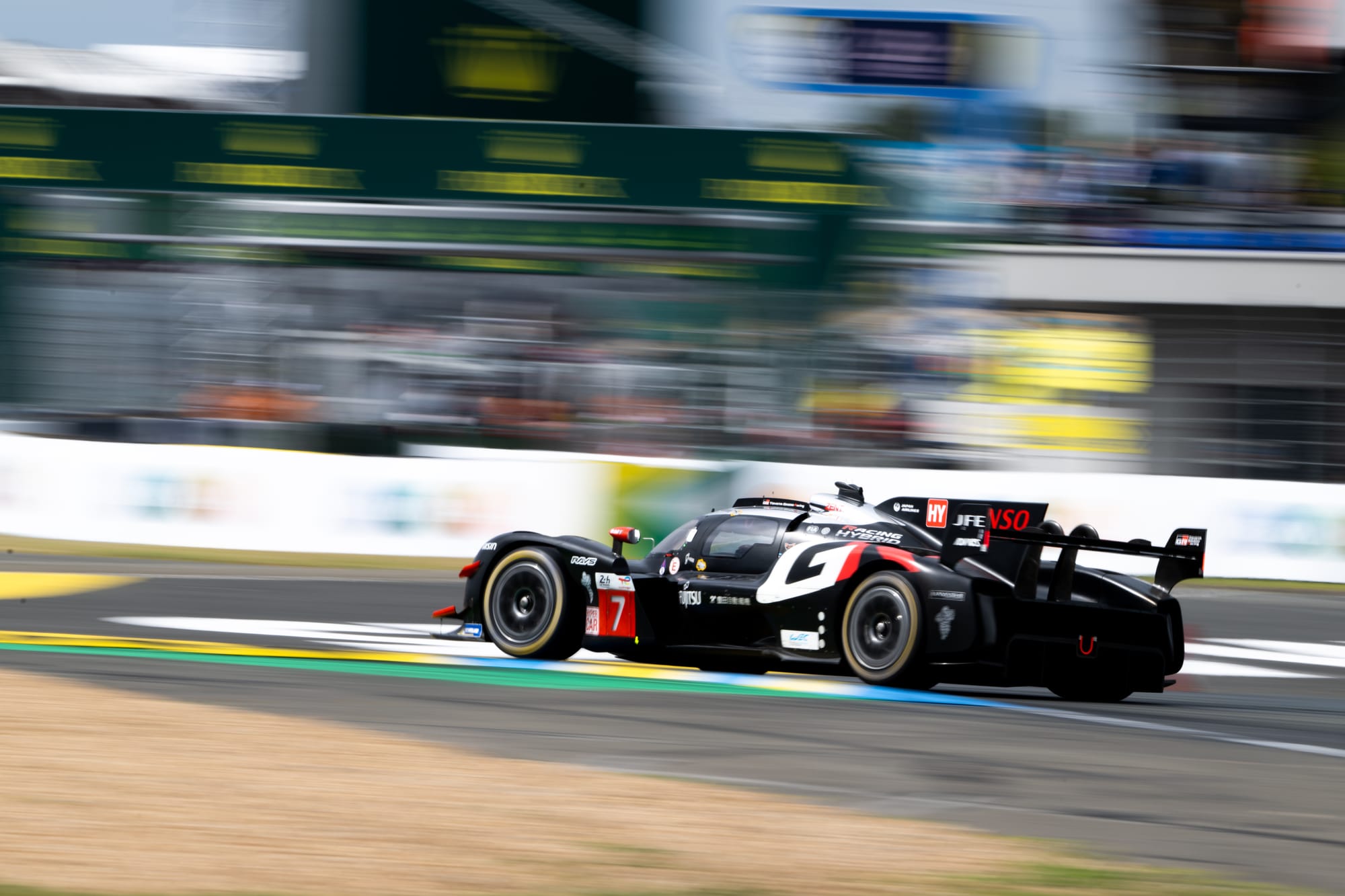
The answer to that is really not that far away at all.
Sure, neither of its cars made Hyperpole, but that was only on a (pretty fundamental) technicality. But for a spin that brought out a red flag, which also meant his time was deleted, Kamui Kobayashi would have comfortably made the final session and would surely have been a contender.
That only extended what’s been a difficult build-up for Le Mans’ dominant force of recent years (and its #7 crew in particular), as Toyota was also forced into a late driver swap with Jose Maria Lopez – who by all accounts was immediately up to speed – stepping in for Mike Conway, who fractured his ribs and collarbone in a cycling accident last week.
But Toyota really isn’t far off – certainly not as much as 11th and 23rd on the grid would suggest. The sister #8 car has shown hints of good speed too, just not when it counted in first qualifying.
Having to come through the field complicates its prospects but over the full race distance Toyota should have the pace to at least be in the conversation with Porsche, the fellow LMH machine of Ferrari and potentially Cadillac.
What about the newcomers?
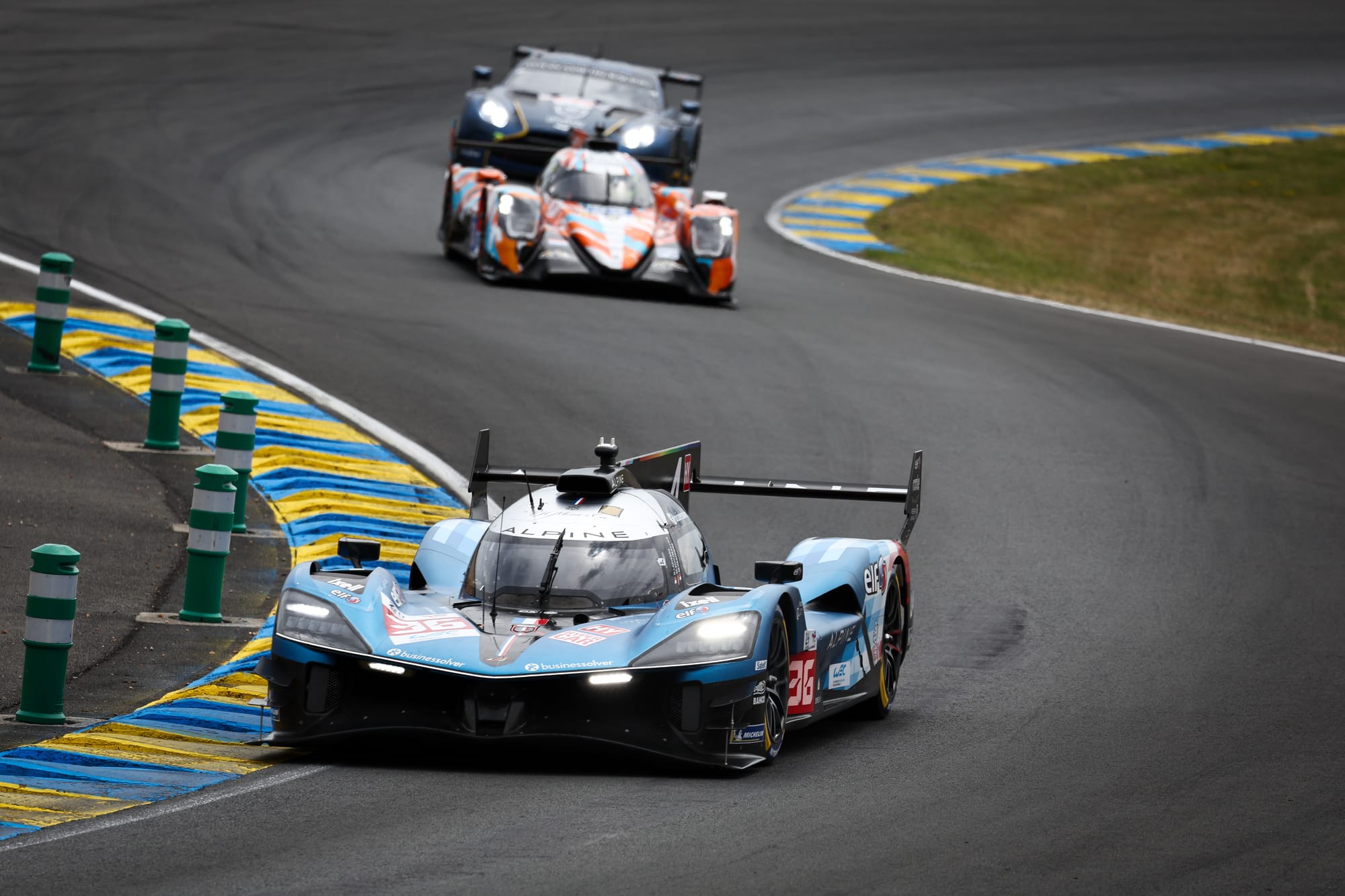
Alpine and BMW are both new-for-2024 WEC Hypercar contenders and have both shown flashes of speed so far this season.
Both backed that up too in qualifying at Le Mans, each getting a car into Hyperpole qualifying – with a shared third row the end result.
BMW’s #15 car then failed to set a time when Dries Vanthoor crashed at Indianapolis corner, bringing out a red flag. But before that it had been quickest of all in the first qualifying session, and the BMW looks the better prospect of the two for the race as well.
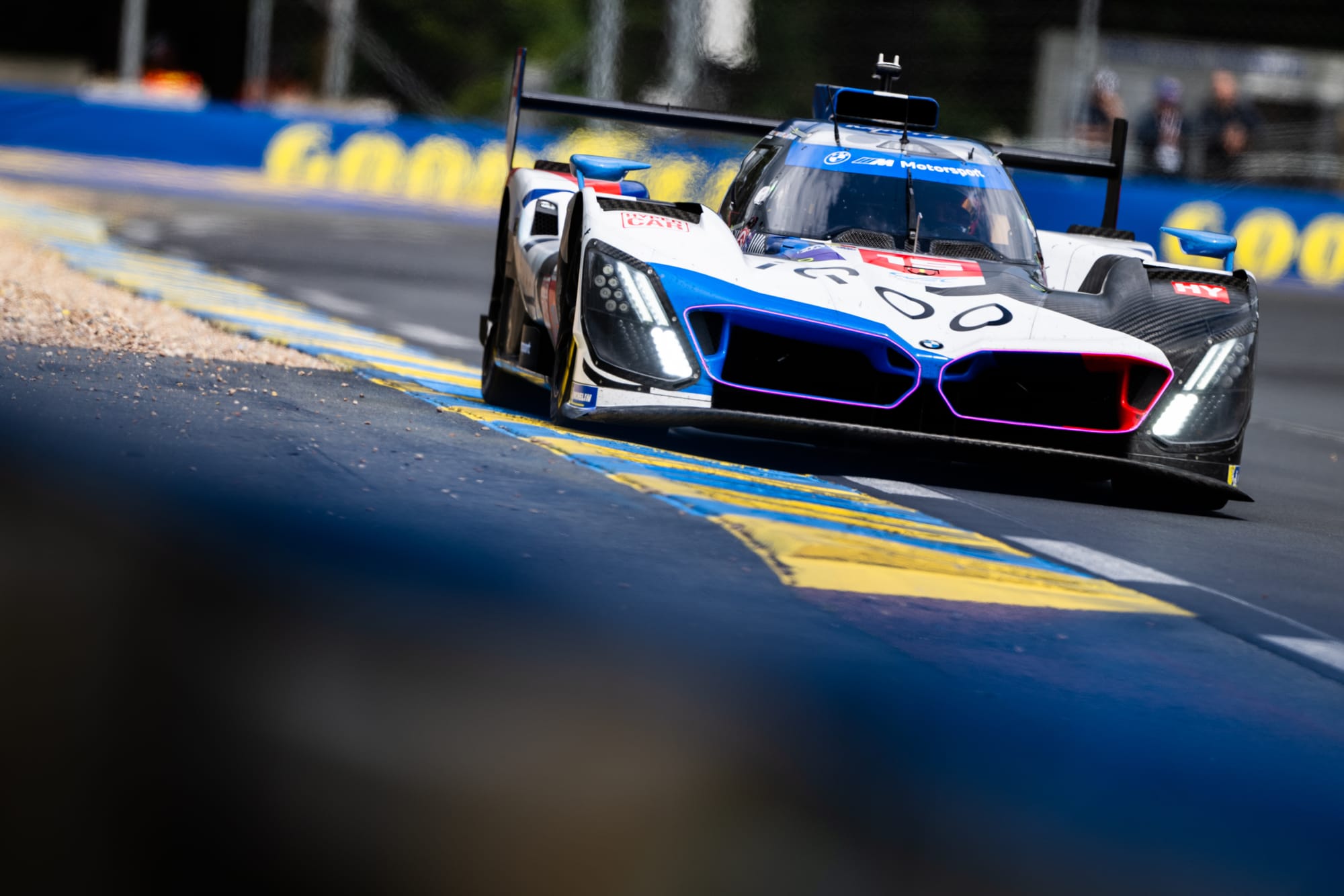
An LMDh entry, it uses the same Dallara chassis as the Cadillac so is a nimble thing. But the BMW, while rapid over one lap, appears to be on the edge at full tilt so consistency and/or reliability might be more of a challenge.
Reliability is a concern too for Alpine but the car has had great straightline speed – so watch out for the A424 at the start in particular.
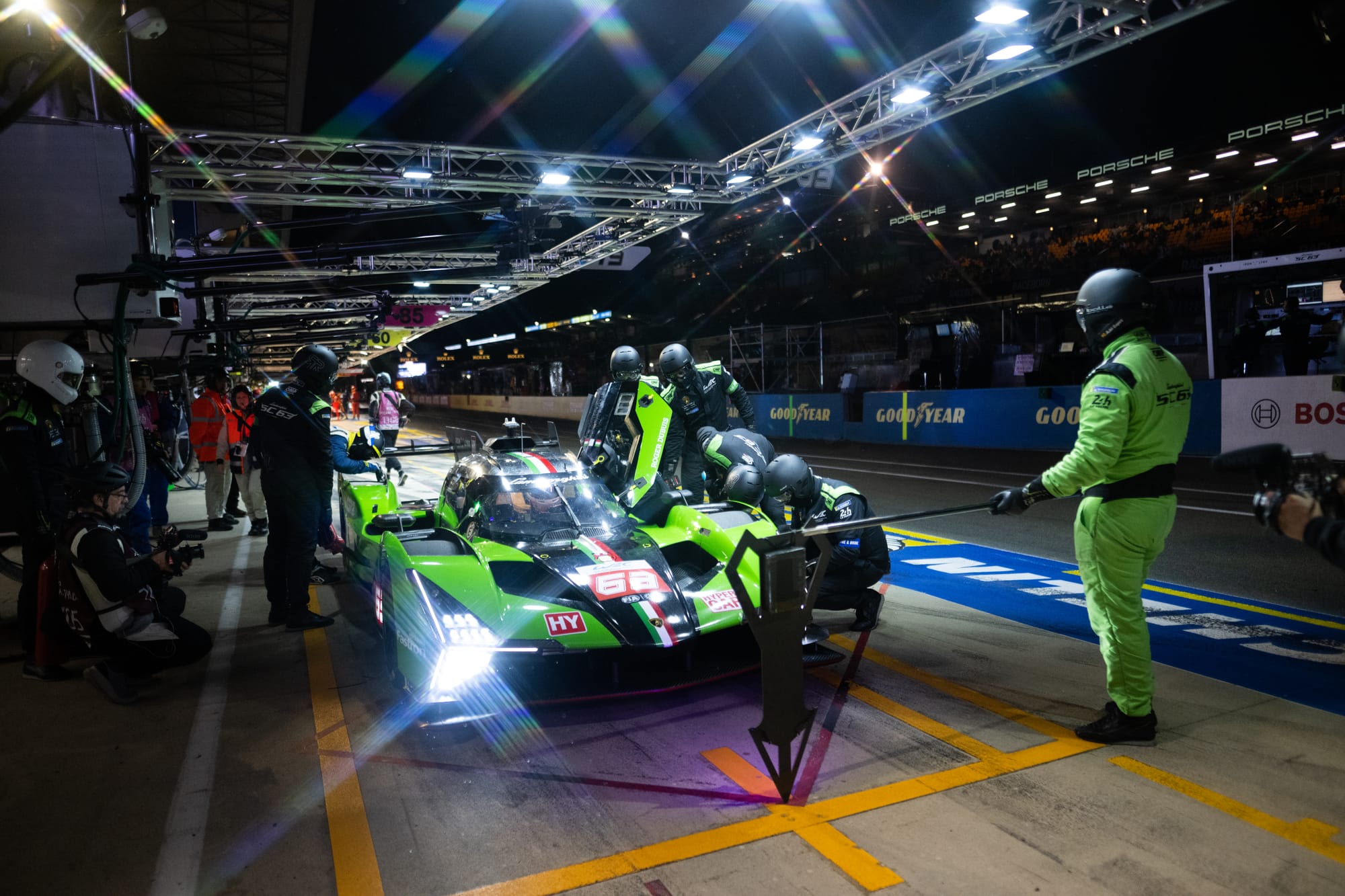
The #63 Lamborghini of Mirko Bortolotti, Daniil Kvyat and Edoardo Mortara was a solid 13th in first qualifying – almost 1.7s up on the sister #19 car – but the race looks far more likely to be a data-gathering project than one where the Ligier-built, Lamborghini-designed SC63 is a factor.
The one privateer project in this year’s Hypercar ranks, from Isotta Fraschini, was slowest of all the Hypercars to set a lap in first qualifying, more than two seconds off the #19 Lamborghini.


